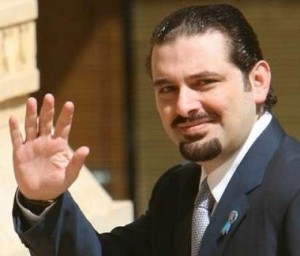
By: Joe Macaron
There is a new rule, probably the only visible Lebanon policy under President Barack Obama’s administration: every US official visiting Damascus must pass by Beirut. The Lebanese Prime Minister Saad Hariri also had to make a stopover in Damascus to absorb any potential domestic commotion surrounding his trip to Washington this week.
When Saad Hariri came to town as Lebanon’s Parliament Majority leader, in January 2006 and October 2007, Syria was the headline and talking points were about the Cedar Revolution and justice to those who killed his late father. Lebanon at that time had a raison d’être for US policy and any Lebanese visitor to Washington would merely reinforce the notion that empowering “moderates” is a recipe to counter “rejectionists” in the Middle East.
Now it is a different time. The inroad made by Damascus is tangible and the manifestation is the fact that the headline in Hariri’s visit reverted back to the Arab Israeli conflict. Saad Hariri had to do an Arab tour, in addition to Turkey, to have a regional justification for his White House meeting on Monday, but the restrained Lebanese premier is unable to deliver and the US administration is unfit to provide leverage in Lebanon.
Saad Hariri has been lashing out on Israel and dismissing US allegations that Scud missiles have been transferred to Hezbollah from the Syrian border; he was also critical of the lack of any US pressure on Israel to stop settlements in the West Bank. The Lebanese Premier was able to stand his ground as the wave of Syrian leverage is back in Beirut, but is slowly and steadily regaining the role of his father’s meticulous foreign policy. He comes to Washington not as an adversary of Syria but as its potential arduous ally.
Unlike the days of President George W. Bush’s administration, Lebanese politicians are not crashing Washington anymore, besides visits by the President and the Defense Minister, the interaction is not as cozy at it was between 2005 and 2008. But Hariri’s visit is significant because it sets the tone for the Lebanese government, which national interest is on the line and depends somehow on the state of US-Syrian relations, whether confrontation or breakthrough. A confrontation means paralysis in Lebanese politics and breakthrough means Lebanon will go deeper in the shadow, but the country needs to play a role in shaping the evolution of this strenuous US-Syrian experiment; it needs to be on the table and not backstage.
It is hard to read Saad Hariri’s heart and mind these days, to know whether his transformational role is a matter of conviction or a result of Saudi Arabia’s new approach to regional politics. He travels as usual with an army of media and advisors, but is more in control of his message and his leaks. He has been arguing that Lebanon should not be part of any regional axis; he is much softer on Hezbollah and Syria while taking some guarded distance from the United States.
Lebanese politics is about proximity talks now. Syrians talk directly to Saudis when they believe Hariri went off track and Hariri opens channel with Damascus to circumvent pressure by Syria’s allies in Beirut. A witty Lebanese politician told Hariri recently that he cannot be married to both anymore, pushing him to choose between staying his course and going all the way to Syria. Meanwhile, Hariri will continue to face a stalemate inside his government.
Saad Hariri comes to town more skeptical of the United States, like the quiet diplomacy emanating from Riyadh. He might make statements that will not entertain the ears of some US officials who ought to understand that the Lebanese frail system cannot bear the burden of shifting the paradigm of the Middle East; the Lebanese must pick their battles and pay the price of their choices, that helping allies in Lebanon could be counterproductive if words are not matched by policies.
Some in Washington are selling the idea that the Lebanese government should not be given a free pass and there should be pressure and consequence for its vote on the United Nations Security Council sanctions as Lebanon holds its rotating presidency through May 31. How Lebanon decides on Iran sanctions is not significant to the passage of the resolution and hence increasing pressure on the already stressed out Lebanese government is futile; a vote to abstain is a safe choice for Beirut and will likely be the case whenever a draft agreement is ready.
Of his 168 days in power, Hariri traveled for 68 days and visited over 15 countries at his own expense, not the government’s budget that has yet to see the light. He wants to walk on the footsteps of his late father but has yet to have an accomplishment beyond standing his ground. Rafiq Hariri was a craftsman in sealing deals and forging compromises, he was a natural businessman, but Saad has yet to make his trademark not in Washington, Damascus or Ryadh but in Beirut. Huffingtonpost

Leave a Reply
You must be logged in to post a comment.